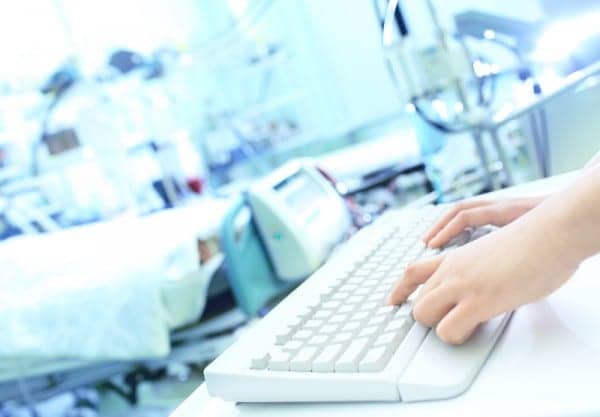By Joie N. Marhefka, PhD
As an educator at Penn State New Kensington (PSNK), my goal is to prepare our biomedical engineering technology (BET) students for successful careers in healthcare technology management (HTM). In order to ensure that they are adequately prepared for the present and future of HTM, we periodically solicit feedback from those who supervise our student interns, as well as recent graduates, employers of our graduates, and our program’s advisory board.
While I think few would argue that a strong electronics background and an understanding of physiology and medical equipment are essential for working in HTM, numerous alumni, supervisors, employers, and advisory board members have mentioned two other (perhaps less obvious) skill sets that are essential for success as a biomedical engineering technician (BMET): networking and communication.
So, in my position as PSNK’s assistant teaching professor and biomedical engineering technology program coordinator, I explored the importance of both networking and communication in HTM and how our program can instill these skills in students—skills that will greatly help them in the modern healthcare environment.
In addition, having “real world” experience is advantageous when searching for and starting a new position in HTM. That’s why students at PSNK are given the opportunity to apply these skills, as well as other technical and soft skills, in a required clinical internship prior to graduation. To us, it’s another invaluable part of their development and preparation for success as HTM professionals.
Networking Know-How
It is no secret that much of today’s medical equipment is connected to the hospital’s network, and many devices are integrated with electronic medical records and hospital information systems. In fact, ECRI Institute recently cited ransomware and other cyber threats as its top health technology hazard for 2018—a move that’s not surprising considering the number of hospital cyberattacks that have made headlines in recent years.
Futher, flaws in medical device networking, which can lead to delayed or inappropriate care, was the No.9 hazard on ECRI’s list. Therefore, it only makes sense for today’s BET graduates to have strong information technology (IT) skills and an understanding of how these skills are applied in the clinical setting.
Employers specifically want graduates to have IT experience surrounding Ethernet networking, wireless networking, picture archiving and communication systems, Linux (specifically related to imaging), equipment integration with IT, software installation, Internet security and installation of software patches, IP addressing, IT troubleshooting and diagnosing, and building and pricing a personal computer.
As such, PSNK students are currently required to take a course in networking, as well as one focused on medical computers and networks. These courses also encompass hands-on labs, which allow students to gain experience and confidence with computer hardware, software, networking, diagnostics, and DICOM. However, I believe networking and IT are topics we can expand upon and further emphasize in our BET program in order to better prepare our students for HTM careers in 2018 and beyond.
Stellar Communication Skills
Communication skills are sometimes overlooked in HTM. The perception of engineers and technicians as people who spend all day alone fixing or testing a piece of equipment seems to give many students the idea that communication skills are irrelevant to success. This, however, could not be further from the truth. It’s crucial that BMETs have good customer service skills and be able to communicate with supervisors, nursing staff, as well as other technicians and OEM tech support personnel. After all, BMETs should be able to respond to a question or service call in a way that the requestor/end user will understand.
Many hospital staff members don’t have the same technical background as BMETs, so it’s important to be able to use language that the equipment user comprehends. In addition to strong verbal communication skills, competence in technical writing is necessary for working in HTM. Specifically, clear documentation of repairs and other work is needed to assist with future troubleshooting, as well as in the event that the device malfunctions and causes harm to a patient.
When we solicited feedback from supervisors, many of them specifically stressed the need for effective email communication. So students in our program are currently required to take an English composition class, as well as a course in public speaking, and one of our medical equipment courses is writing-intensive. And in the equipment laboratories, students learn to document and write technical reports using a computerized maintenance management system.
However, I believe that providing more opportunities to learn and practice technical communication specific to the HTM field will benefit our graduates. This could include adding a technical writing course to the curriculum and/or giving more assignments and activities related to documentation, as well as developing scenarios that allow students to practice the type of verbal communication that is necessary when working in HTM. By focusing on communication, we are helping graduates become more confident and successful when starting their careers.
Real-World Experience
At PSNK, our students are required to complete a 400-hour internship prior to graduation. This internship allows students to integrate their studies and apply knowledge learned in the classroom to a clinical environment, where they will gain practical experience in maintaining, troubleshooting, and repairing medical equipment. Students also have the opportunity to observe the hospital network structure and work with networked monitors and other devices during their internship.
In addition to technical skills, students get real world-practice communicating with supervisors, OEM tech support personnel, and other hospital employees. While knowledge gained in the classroom certainly helps prepare students for their careers, having the opportunity to apply this knowledge to real-world challenges encountered in a hospital prior to entering the workforce is invaluable. That’s why this internship experience is key to preparing graduates for successful careers in HTM.
Final Thoughts
Networking and communication are just two of the skills that our students must develop before starting their careers in HTM. Students also must understand (and take courses in) electronics and physiology, as well as math, physics, and medical equipment and systems. There, students will learn the fundamentals of use, application, operation, installation, acceptance testing, preventive maintenance, performance assurance, and safety inspections and various medical devices—and apply this knowledge in hands-on labs.
Students also have the opportunity to take a course in troubleshooting—another vital skill for BMETs. However, in this column I chose to focus on networking—as it is becoming increasingly important in the hospital setting—and communication, as students and those at the start of their careers often overlook its importance. And the combination of all of these attributes, culminating with the real-world internship experience, prepare our graduates to start successful careers in HTM in 2018 and beyond.
Joie N. Marhefka, PhD, is assistant teaching professor and biomedical engineering technology program coordinator at Penn State New Kensington in Western Pennsylvania. Questions and comments can be directed to 24×7 Magazine chief editor Keri Forsythe-Stephens at [email protected].





I agree with everything you mentioned. I would also add that learning how to manage projects now across groups and using tools is important, along with managing operating systems, patches, etc on medical devices is becoming increasingly important.
Great article!
Tell your students to learn all about IT Security policies for Healthcare; this is huge now. Many hospital are requiring that patient monitoring and other devices are put directly on to their on switches and routers. So if you don’t understand these IT Security Standards any installation can and will be delayed.
So as an “old school” BMET, one of the things I see in today’s coop students and interns I work with, is a great need for improved physical/mechanical use of tools skills. it is great to be good in front of a computer screen with a network and software. but a BMET needs to be able to lay hands on things a “fix stuff”. A BMET program like yours should have a skills lab where some very complex mechanisms are taken apart and the reassembled using tools and teaching their use. I recently had to open my tool cart and teach new interns the names of common hand tools. A good real world exercise would be replacing the broken glass of a smart phone or Ipad or it’s battery using the tech guides on ifxit.com Or open up a laptop, remove the motherboard and all the sub assemblies, then put it all back together again and reboot it. I acquired my skills building model planes and bikes as a youth, hot rods and a teen and lab analyzers as an adult. IMHO of course…
I also agree on communications skills. I would also caution that along with communication skills, a class or two on what a hospital really is and how it works and medical terminology. caregivers use a lot of jargon, acronyms and verbal shorthand that is meaningless without the understanding the context. It is almost a different language.
the word “monitor” for example can mean so many different things as the context and speaker changes. use of the work “broken” by caregivers is another interesting topic.
Either way the job of creating the next generation of HTM workers is essential and is not being made any easier as some OEMs are adopting support models that are not designed to be inclusive of or collaborative with BMETs. good luck with it !
OOPS! pardon a couple typos above, typing in small box, where one can’t see the whole sentence, compounded by having eyeballs over 1/2 century old… remember the good old days when one could actually see the components on a PCB without a microscope and remove and replace them with normal size tools ?
I been a Biomed for nine years. Biomed is not the same as used to be. it is a vanishing career with no known future. it is a dead end. sorry if you don’t like my opinion.
My sister who is a Biology major is currently looking for equipment that she can use for research. I agree with you that medical equipment is connected to the hospital’s network and a lot of devices are united with electronic medical records. I hope we can find an online class that can teach her biomedical technology.